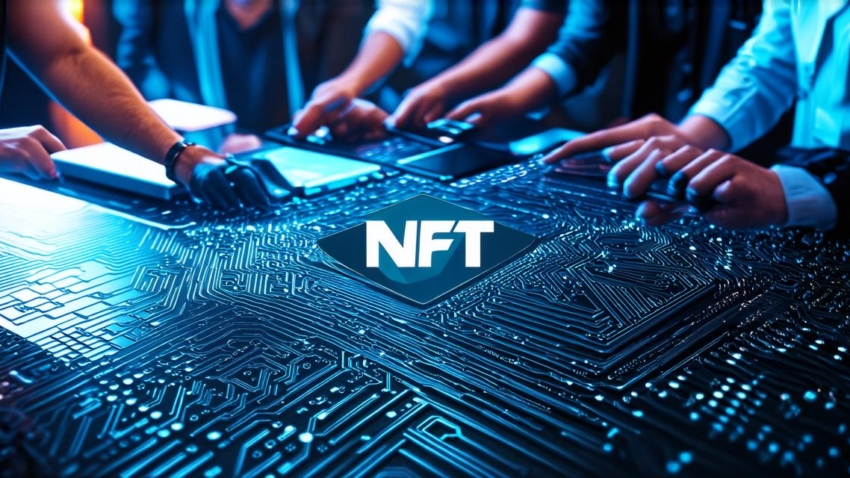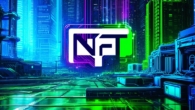
Can you retain ownership of the NFT indefinitely
Understanding the Basics of NFT Ownership
Before we dive into the complexities of NFT ownership, it’s important to establish a few key concepts. Firstly, an NFT is a digital asset that represents ownership of a unique item, such as an artwork, collectible, or in-game item. Unlike cryptocurrencies, which are fungible and interchangeable, NFTs are one-of-a-kind and cannot be replaced with another item of equal value.
Secondly, when you buy an NFT, you are purchasing the rights to own and use that particular asset, but not necessarily the underlying intellectual property (IP) rights. IP rights refer to the legal protections afforded to creators of original works, such as copyrights, patents, and trademarks. These rights allow creators to control how their work is used, distributed, and reproduced, and can generate significant revenue through licensing, merchandising, and other commercial activities.
Finally, it’s important to understand that NFT ownership is governed by both legal and technical standards. From a legal perspective, NFTs are subject to the same IP laws as traditional digital content, such as music, videos, and software. However, the technical aspects of NFTs, such as the blockchain infrastructure that underpins them, can also impact ownership rights and transferability.
Legal Considerations Surrounding NFT Ownership
One of the key legal considerations surrounding NFT ownership is the issue of transferability. When you buy an NFT, you are essentially purchasing a unique digital asset that can be transferred from one person to another on the blockchain. However, the terms of that transfer can vary widely depending on the specific NFT and the agreement between the buyer and seller.
Another important legal consideration is the impact of smart contracts on NFT ownership. Smart contracts are self-executing programs that automatically enforce the terms of an agreement between two parties. They are commonly used in NFT transactions to facilitate the transfer of assets and ensure that both parties comply with the agreed-upon terms.
Technical Considerations Surrounding NFT Ownership
In addition to legal considerations, there are also technical aspects to NFT ownership that must be taken into account. One of the key technical considerations is the issue of interoperability between different NFT platforms and marketplaces.
While many popular NFT platforms, such as OpenSea and Rarible, use the Ethereum blockchain to facilitate transactions, there are also other blockchains, such as Binance Smart Chain and Polygon, that support NFTs. However, not all NFTs are compatible with all blockchains, and this can limit their transferability and liquidity.
Another technical consideration is the impact of metadata on NFT ownership. Metadata refers to the additional data that accompanies an NFT, such as information about its origin, creator, and provenance. This metadata can be critical for establishing the authenticity and value of an NFT, but it can also be vulnerable to tampering or manipulation.
Case Studies and Personal Experiences

To gain a better understanding of the complexities surrounding NFT ownership, it’s helpful to look at real-world examples and personal experiences. One notable case study involves the artist Beeple, who created a digital artwork called “Everydays: The First 50 Days of 2021” and sold it as an NFT on Christie’s auction house for a record-breaking $69 million.
Beeple’s NFT was sold with a set of specific ownership terms that restricted its transferability and required the buyer to obtain his consent before using the artwork in any commercial context. This helped to protect his IP rights and ensure that he received proper compensation for his work.
Another personal experience involves the creator of the popular NFT collection Cryptokitties, who faced legal challenges over the ownership of his own creations. In 2018, the creator sold a rare Cryptokitty to a buyer who later attempted to sell it on eBay without his permission. The creator was able to recover the NFT through legal action, but the incident highlighted the potential risks and challenges surrounding NFT ownership.
FAQs
To help NFT creators better understand the complexities of NFT ownership, we have compiled a list of frequently asked questions:
- What is an NFT, and how does it work?
- Who owns the IP rights to NFTs?
- What are the legal risks associated with NFT ownership?
- How can NFT creators protect their IP rights?
- What are the technical challenges associated with NFT ownership?
Conclusion
NFT ownership is a complex and evolving area that requires careful consideration of both legal and technical factors. While there are risks and challenges associated with NFT ownership, there are also many potential benefits for artists, creators, and collectors alike. As the NFT market continues to grow and mature, it’s important for all stakeholders to stay informed and seek expert advice as needed.







